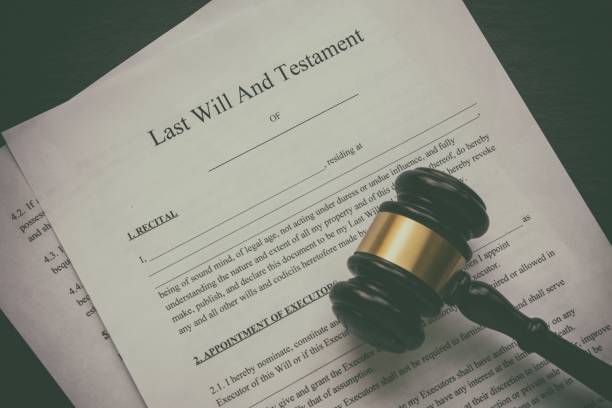Last Wills and testaments are legal documents that allow people to control how distribution of their assets is to take place after their death. Death is inevitable, but that doesn’t mean we have to leave our affairs in disarray. These documents are also a great way to ensure that your loved ones including your surviving spouse are taken care of and that your wishes are respected.
In Australia, state and territory laws govern last Wills and testaments. There are some general requirements that apply to all Wills, such as the requirement that you be of legal age and sound mind when you make it. However, there are also some specific requirements that vary from state to state.
The ABC’s of Last Wills and Testaments NSW
As we have briefly introduced earlier, a last Will and testament is a legal document that details how a person’s assets and property will be distributed after their death. In Australia, the creation and interpretation of Wills are a matter of state or territory law, with each state and territory having legislation setting out the rules for creating Wills. For instance, the probate process in probate court may vary from state to state. Here’s a guide to last Wills and testaments in New South Wales.
Assets
A Will allows you to specify how assets distribution for personal property such as your house, money, and personal belongings will take place after your death. It is essential to identify all your assets, either in your own name or jointly with someone else, when making a Will.
This will ensure that your executor has a comprehensive list of your assets and can carry out your wishes effectively. Additionally, we recommend that you review and update your Will as your personal situation changes, such as acquiring new assets or experiencing significant life events like marriage or divorce. Some assets like life insurance policy may have designated beneficiaries. Contact your solicitor to see what happens in such cases.
Beneficiaries
Your Will identifies the people or organisations that will receive your assets, known as beneficiaries. Under the Succession Act 2006, beneficiaries in NSW have certain legal rights, including the right to receive information about the existence of a valid Will, the nature and extent of the deceased’s estate, and their entitlement under the Will.
Children
If you have minor children, your Will can specify who will be their legal guardian in the event of your death. This is an important decision that one should make carefully, taking into account the best interests of the children and the capabilities of the proposed guardian.
Distribution
Your Will ensures that your assets distribution takes place according to your wishes, preventing issues and confusion among your loved ones. After the payment of all debts and taxes, the executor can distribute the remaining assets to the beneficiaries according to the instructions in the Will. This may involve transferring ownership of properties, transferring funds from bank accounts, or distributing personal belongings
Executor
You can appoint an executor in your Will, who will be responsible for administering your estate after you pass away. They are a kind of personal representative. The executor is responsible for distributing the assets according to the terms of the Will. If the testator does not name any executor in the Will, the court will appoint an administrator to perform these duties.
Funeral Wishes
Your Will can include instructions for your funeral and burial or cremation arrangements. Funeral wishes can include details such as:
- whether you want to be buried or cremated,
- the location of your final resting place, and
- any specific instructions for the funeral service.
However, these may not necessarily be legally binding. The funeral expenses may be paid out through the deceased’s estate.
Legal Validity
For last Wills and testaments to be legally valid in Australia, it must generally be:
- in writing,
- signed by the testator, and
- witnessed by two witnesses.
If last Wills and testaments do not comply with the statutory requirements, they may be considered invalid, and the estate will be administered according to the intestate succession laws of NSW.

Review and Update
It is essential to review and update your last Wills and testaments as your personal situation changes, such as getting married, having children, or acquiring new assets. Outdated or inaccurate Wills can lead to disputes, delays, and additional expenses for your loved ones after your death.
It is recommended to review and update your Will at least every 2-3 years or whenever there is a significant change in your personal or financial circumstances. This can help ensure that your Will accurately reflects your wishes and that your loved ones are provided for after your death.
Testator
The person making the Will is called the testator, and they must be at least 18 years old and have legal capacity to understand the consequences of their actions. A testator must have the requisite testamentary capacity to make a Will, meaning they must be of sound mind and capable of understanding the significance of making a Will. Additionally, a testator must make their Will without any undue pressure or coercion.
Witnesses
The witnesses to your Will should be independent and not beneficiaries or spouses of beneficiaries, to ensure its validity. Having witnesses present during the signing of last Wills and testaments help ensure its authenticity and can prevent disputes or challenges to its validity in the future. If a Will is not properly witnessed, it may be considered invalid, and the testator’s last wishes may not be carried out
Things to Keep In Mind
If you’re thinking about last Wills and testaments, there are a few things you should keep in mind:
- Choose your executor wisely. The executor is the person who will be responsible for carrying out your wishes after you die. They should be someone who is trustworthy and organised.
- Be specific about your wishes. Don’t just say “I want asset division to be equal among my children.” Specify which assets you want each child to receive.
- Keep your will up to date. As your life changes, so should your Will. Make sure to review your will regularly and update it as needed.

Create your Own Will with an Estate Planning Attorney Today
Planning for the future is important, and creating last Will and testaments is a crucial part of that process. That’s why it’s important to hire a qualified family lawyer to help you. A family lawyer from JB Solicitors can advise you on the best way to structure your Will and ensure that it is a legally valid Will. Our team can help you create an estate plan.
Protect your loved ones and your assets with a last Will and testament. Contact a family lawyer in NSW today if you want to start with the legal process. You may also ask our team about intestacy laws that apply if there are no Wills in place.
